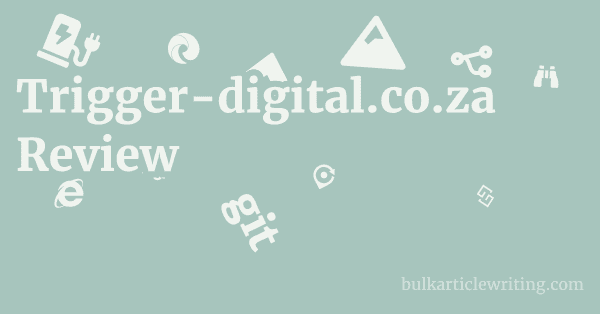In the digital realm, where data is currency and influence is paramount, the ethical conduct of a digital marketing agency is crucial. For a business to be truly trustworthy and responsible, it must operate within a framework of honesty, transparency, and respect for user privacy. The absence of these elements can lead to not only legal repercussions but also a loss of client trust and reputational damage.
Data Privacy and POPIA Compliance
In South Africa, the Protection of Personal Information Act (POPIA) is the cornerstone of data privacy. It mandates how personal information must be collected, processed, stored, and shared. A digital marketing agency, by its nature, handles significant amounts of personal data—from website visitor analytics to client contact details and potentially sensitive customer information for marketing campaigns. Therefore, it is absolutely essential for such an agency to have a clear, comprehensive, and easily accessible Privacy Policy. This policy should detail:
- What data is collected.
- How it is collected (e.g., through cookies, forms).
- The purpose for which the data is used.
- How data is stored and secured.
- Whether data is shared with third parties and under what conditions.
- Users’ rights regarding their data (e.g., right to access, rectify, delete).
- Contact information for privacy-related queries.
The absence of a Privacy Policy on trigger-digital.co.za is a significant ethical and potentially legal oversight. It suggests a lack of commitment to data protection principles and leaves users without knowledge of how their information is handled.
Transparency in Operations
Transparency extends beyond just data privacy. It encompasses being open about the company’s identity, physical location, and who is behind the services. A reputable agency should provide:
- Physical Address: A verifiable street address signals legitimacy and a permanent business presence. It allows clients to know where the business is located and provides a point of physical contact if needed.
- Registered Business Information: Companies should be registered with the relevant authorities (e.g., CIPC in South Africa) and ideally display their registration number. This allows for verification of their legal existence.
- Team Information: Introducing the team members, their roles, and their expertise helps build rapport and trust. It shows that there are real people with relevant skills delivering the services.
- Clear Terms and Conditions: These legal documents outline the scope of services, payment terms, cancellation policies, intellectual property rights, dispute resolution mechanisms, and client responsibilities. Without them, both the agency and the client are exposed to ambiguity and potential disputes. The lack of such terms on trigger-digital.co.za means there are no clear rules governing the business relationship.
Avoiding Misleading Claims and Practices
Ethical digital marketing also means avoiding deceptive practices, exaggerated claims, and misrepresentation. This includes:
- Authentic Portfolio: Showcasing real projects with measurable results is vital. The redirection of trigger-digital.co.za’s “View All Projects” link to a theme demo rather than actual client work is highly misleading and undermines their credibility. It suggests a lack of genuine experience or an attempt to mask limited work.
- Realistic Expectations: An ethical agency will set realistic expectations regarding SEO rankings, social media growth, and conversion rates, rather than promising overnight miracles. Overly optimistic claims can lead to client dissatisfaction and a breach of trust.
- Ethical SEO Practices (White Hat SEO): This involves adhering to search engine guidelines, using legitimate strategies to improve rankings, rather than resorting to “black hat” tactics that can result in penalties. While trigger-digital.co.za doesn’t specify their SEO methods, the overall lack of transparency makes it difficult to ascertain their ethical approach to search engine optimisation.
- Honest Testimonials: Testimonials should be genuine and verifiable. While it’s hard to prove the authenticity of testimonials on the site without external verification, the general lack of transparency raises a flag.
In conclusion, for trigger-digital.co.za or any digital marketing agency, establishing and maintaining high ethical standards is non-negotiable. The current state of their website, particularly the absence of key legal and transparency documents, significantly impacts their ethical standing and raises serious concerns for any potential client.
|
0.0 out of 5 stars (based on 0 reviews)
There are no reviews yet. Be the first one to write one. |
Amazon.com:
Check Amazon for Ethical Considerations for Latest Discussions & Reviews: |

Leave a Reply